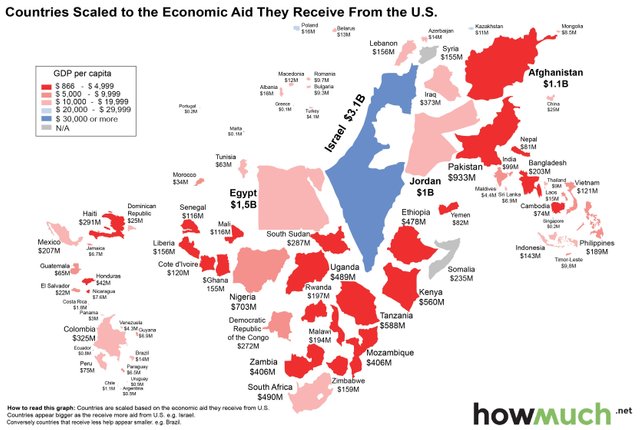How to Harm A Foreign Nation: Aid Them
For the 60s R&B fans out there, I hope you can channel the harmonies of The O’Jays while reading the words “money, money, money, money, money.” For everyone else, it won’t be as groovy an opening, but the words themselves should suffice.
Today I want to talk about money; that double-edged sword humanity has used to help carve our modern world. The root of all evil when watered with the vices of man; the panacea for all evil when cultivated by the hands of the myopic idealist. It is the latter on which I want to focus my discussion today, and I’d like to have that discussion in terms of a very specific type of money that I, along with others, believe to be often malignancy wearing the clothes of beneficence.
Issues with Foreign Aid
-Perhaps one of the biggest issues I take with foreign economic assistance is its implicit assumption that multifaceted issues might be remedied by wholly singular solutions, à la (not Akbar) “throwing money” at the problem. The problems plaguing “underdeveloped” recipients are often being heard as the echoes of events rooted decades if not centuries into national history. Given the complex socioeconomics, historical developments, and unique interworking of each nation receptive of foreign assistance, it is not very surprising that the exorbitant packages we’ve seen (e.g. $35 billion by the USA in 2014 and $13.5 billion by Britain in 2015) have not correlated with significant, clear growth (1, 2, 3).
-Segued by my previous statement, there is also a seemingly dangerous absence of accountability in terms of where that money is actually spent. The issue presents a rather tricky dilemma for nations donating the money: dictate stipulations for its expenditure at the cost of the recipient’s national autonomy or respect that autonomy at the cost of overseeing appropriate spending. The cost of the latter has been one that I believe merits some level of scrutiny. In terms of foreign assistance without clear direction, the results have ranged from the comical, such as North Kenya’s construction of a $10 million fish-freezing plant that required more energy than available in the region, to the pernicious, as seen in Ethiopia’s Mengistu Haile Mariam’s use of aid for forcible resettlement. Misappropriation of funds can also be observed in the Congo, where food supplies have been sold in an effort to purchase an Italian arms factory (4).
-Lastly, there is the question of fostering dependence of those recipient nations on those of the donor ones. For countries that depend heavily on the reception of foreign assistance, there exists an implicit power imbalance between recipient and donor. While not necessarily harmful in its mere existence, there emerges the possibility that donor nations may use their assistance as a leveraging tool. With a simple threat or implication that aid might be slashed or withdrawn, there is great incentive for recipient nations (at least, their governments) to act in the interests of the donor nations. Inversely, the promise of more aid for certain actions by recipient governments might hold the same implications. This idea might be extrapolated to within the recipient nations themselves, between the government and the governed. Aid can be used as a political tool, rewarding those loyal to those in control of the foreign assistance.
Closing
The gripes and criticisms I’ve presented are by no means an extensive listing of the many issues that plague foreign assistance. And as with any topic of such complexity, there are arguments that can be made for the opposing view regarding the importance of foreign aid. I think at very least though we can attempt to try to answer the question “is foreign aid working in its current state?” In Ethiopia, foreign aid was indeed working for Mengistu Haile Mariam, who as head of state deprived regions of opposing politics aid money. In Zimbabwe, foreign aid has indeed worked for President Mugabe, who has been accused of using looted aid money to fuel violence against his opposition (4). As such, foreign aid in its current state seems often times assisting all the wrong people; at its best perpetuating national stagnation and at its worst encouraging preexistent debauchery.



Don't give a hungry man any fish, teach them how to go fishing...
I can't help but hear love train in the background as well.
We all need help in one form or another, but what we do with such help is also important.
Giving Billions of dollars in aide, without oversite and control of distribution, just gives the despot governments more power. While not helping the people in these countries all.
This definitely needs to be done differently or stopped.
援助是为了促成共识的达成,Aid is to contribute to reach consensus
No one helps without its benefits. If the state provides assistance to someone, it means pursuing some goal. They can be economic, political or to compel another state to do what the other person needs. There is no altruism there.